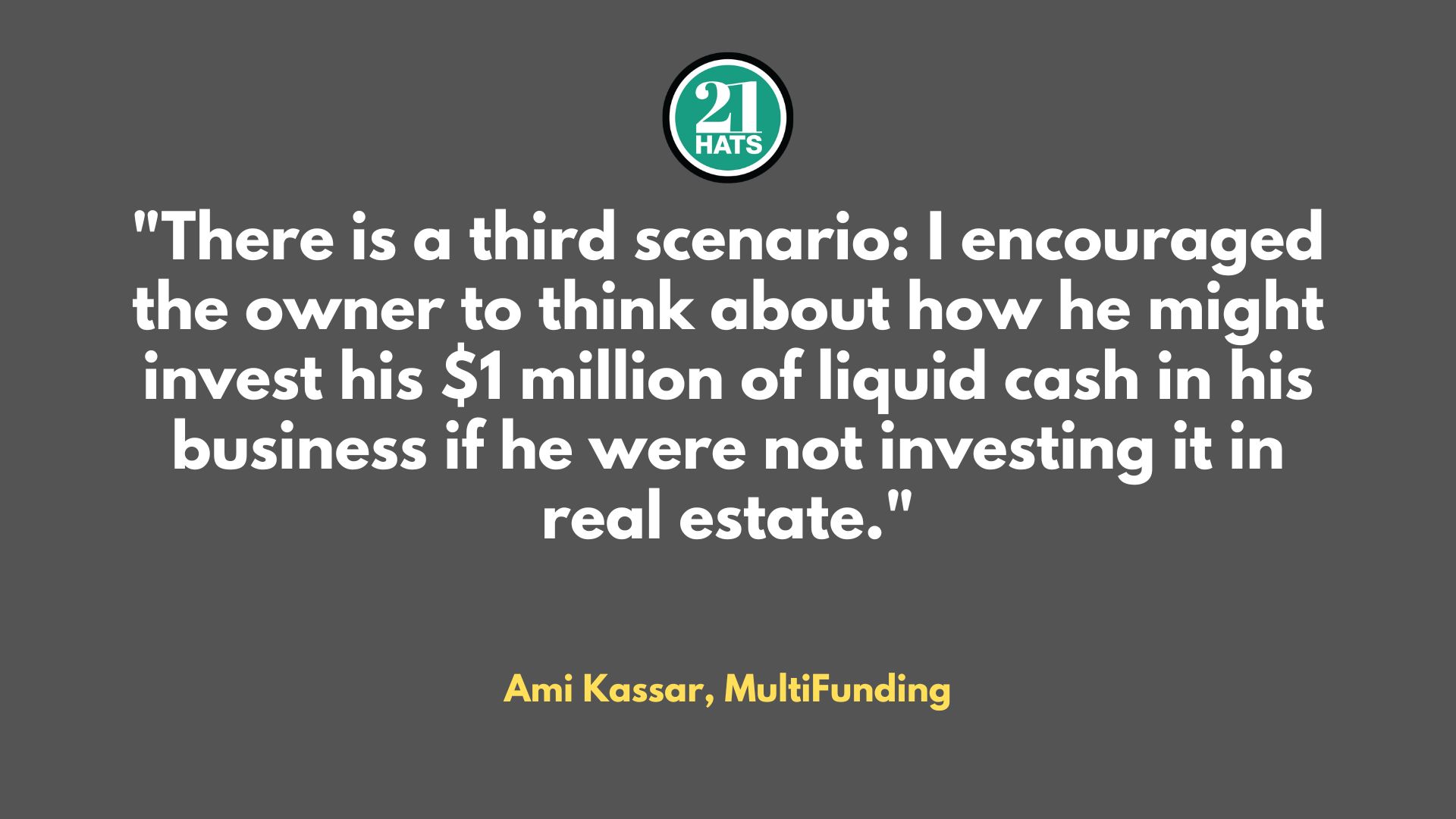Should I Buy the Building?

An entrepreneur is considering buying a building with as much space as he’s currently leasing. Or he could buy a bigger building and find a tenant. Or maybe he should just invest in his business.
By Ami Kassar
Recently, an entrepreneur who is tired of renting and is thinking about buying a building called to discuss his options. He wanted help figuring out if he’s qualified to get a loan and how much he could afford to spend. It turns out he can afford a nice big building, but buying one might not make the most sense for him. As always, the devil is in the details.
The entrepreneur’s business manufactures car accessories, with annual revenue of about $8 million and a profit of about $500,000. His current rent for space in an industrial building is $15,000 a month for about 14,000 square feet. The problem is that the space is divided. There are other suites and spaces between the owner’s two sections. In addition, the owner would like the stability and the potential appreciation that would likely come with owning business real estate. He has approximately $1 million of liquid cash that could go toward a down payment.
I advised this entrepreneur to consider three scenarios:
Buy A Similar Size Building
If he bought a building of approximately the same square footage he occupies today, the price would be about $4 million. He could get a loan through the SBA or—because he has enough liquid cash—he could purchase this building with conventional financing and about a 25-percent down payment.
If he wanted to use conventional financing and put down $1 million, he would need to borrow $3 million. If he could get this loan at 7.5 percent on a 25-year amortization, his monthly payment would be $22,169, which is higher than his current rent, but the bank would likely be comfortable with the extra expense because he’s making enough profit from his core business. He also would benefit from certain tax advantages—not my area of expertise—but at the same time, he would now be responsible for property taxes.
If he wanted to, he could also decide to buy the building with an SBA 7(a) loan, which would allow him to make a down payment of just 10 percent. The interest rate would likely be one or two percentage points higher, but he wouldn’t have to lay out as much cash. This is a personal decision. He could also use an SBA 504 loan, which I will explain in the example below.
Buy A Bigger Building
This entrepreneur could also consider buying a building about double the space he currently occupies by leveraging an SBA 504 loan. With an SBA 504 loan you can do a project of up to $12.4 million with 10 percent down. SBA loans must be used for owner-occupied real estate, but a tenant can take as much as 49 percent of the space. As with a conventional mortgage, he would have to demonstrate that he would have the necessary cash flow, but the lender would take into consideration the extra rent that would be earned from a tenant.
My client has seen a building that’s twice the size of his current space on the market for $7.5 million. If he were to buy it with an SBA 504 loan, he would need to put down $750,000 and borrow $6.75 million. The SBA’s 504 loans are divided into a conventional loan and a debenture with a local community development corporation that would issue the SBA loan. All 504 loans are issued in this manner with two loans, and depending on the expertise and experience of the local CDC, the application process can be exhausting. At a blended rate of 7.5 percent, my client would have a monthly payment of $49.881.90. He thinks he can earn $18,000 in rent from a tenant, bringing his monthly payment down to approximately $32,000. This is higher than in the first scenario but still affordable given his current cash flow. And if his business grows over time and he needs more space, he can ease out the tenants and expand into the space.
Bonus Advice
There is a third scenario that my prospective client hadn’t considered. I encouraged him to think about how he might invest his $1 million of liquid cash in his business if he were not investing it in real estate. How could he use the money to grow and expand his core business? What impact would that have on the business? If he could leverage the $1 million to, say, double the size and profitability of his business, how much would his valuation increase? And how would that increase compare to the potential upside in the real estate market?
What’s the best answer? Ultimately, it’s not my place to say. Owners have to make these decisions based on their own risk profile and instincts. My job is to lay out the alternatives.
Ami Kassar is founder and CEO of MultiFunding.